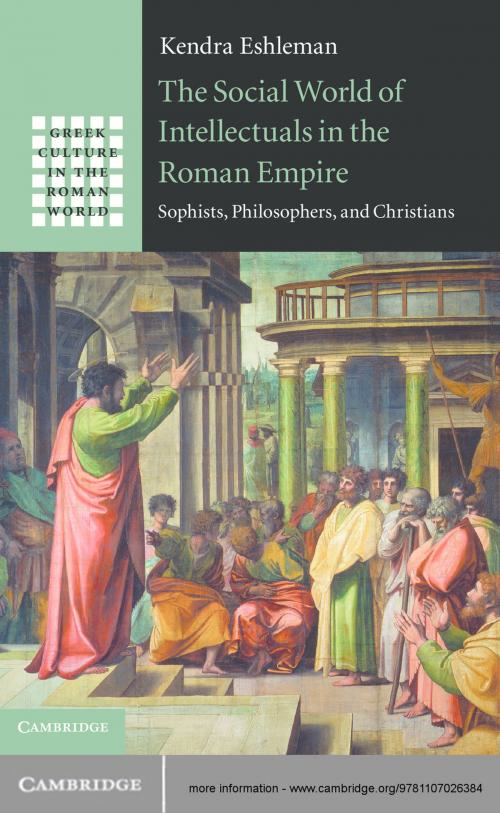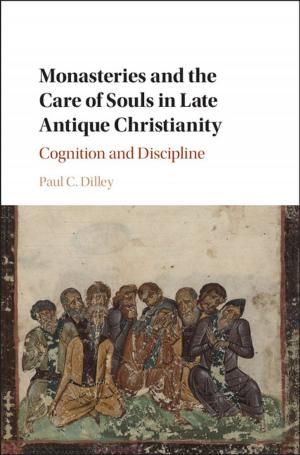The Social World of Intellectuals in the Roman Empire
Sophists, Philosophers, and Christians
Nonfiction, History, Ancient History, Religion & Spirituality| Author: | Kendra Eshleman | ISBN: | 9781139854191 |
| Publisher: | Cambridge University Press | Publication: | November 8, 2012 |
| Imprint: | Cambridge University Press | Language: | English |
| Author: | Kendra Eshleman |
| ISBN: | 9781139854191 |
| Publisher: | Cambridge University Press |
| Publication: | November 8, 2012 |
| Imprint: | Cambridge University Press |
| Language: | English |
This book examines the role of social networks in the formation of identity among sophists, philosophers and Christians in the early Roman Empire. Membership in each category was established and evaluated socially as well as discursively. From clashes over admission to classrooms and communion to construction of the group's history, integration into the social fabric of the community served as both an index of identity and a medium through which contests over status and authority were conducted. The juxtaposition of patterns of belonging in Second Sophistic and early Christian circles reveals a shared repertoire of technologies of self-definition, authorization and institutionalization and shows how each group manipulated and adapted those strategies to its own needs. This approach provides a more rounded view of the Second Sophistic and places the early Christian formation of 'orthodoxy' in a fresh context.
This book examines the role of social networks in the formation of identity among sophists, philosophers and Christians in the early Roman Empire. Membership in each category was established and evaluated socially as well as discursively. From clashes over admission to classrooms and communion to construction of the group's history, integration into the social fabric of the community served as both an index of identity and a medium through which contests over status and authority were conducted. The juxtaposition of patterns of belonging in Second Sophistic and early Christian circles reveals a shared repertoire of technologies of self-definition, authorization and institutionalization and shows how each group manipulated and adapted those strategies to its own needs. This approach provides a more rounded view of the Second Sophistic and places the early Christian formation of 'orthodoxy' in a fresh context.















